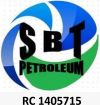About the Course
The course will cover concepts and techniques necessary to design, specify and manage gas field production facilities. It covers gas conditioning and processing technology and provides a clear understanding of the equipment and processes used in common separation and gas treating systems.
Other things covered are gas dehydration, sweetening and gas processing operations and the integration between the individual processing operations. Hydrocarbon reconciliation and allocation of produced fluids to the contributing reservoirs are explained and supported by exercises to cement the learning of the various topics treated. This training seminar will enable the participants to develop a “feel” for the important parameters of designing and operating a production facility. The participants will understand the uncertainties and assumptions inherent in designing and using the equipment in these systems and the limitations, advantages and disadvantages associated with their use.
Course Objectives
- Selection and evaluation of processes used to dehydrate natural gas, meet hydrocarbon dewpoint specifications and extract NGLs
- Application of gas engineering and technology in facilities and gas plants
- Important specifications for gas, NGL and condensate
- How to apply physical/thermodynamic property correlations and principles to the operation, design and evaluation of gas processing facilities
- Equipment sizing methods for major process equipment.
- To evaluate technical validity of discussions related to gas processing
- To recognize and develop solutions to example operating problems and control issues in gas processing facilities.
Course Outline
Introduction to Natural Gas Processing
- Introduction to natural gas processing
- Fundamentals and of natural gas engineering
- Physical properties of natural gas
- Natural gas production
- Impurities in the gas
- Contract terms
- Heating value/ BTU (British Thermal Unit) importance
- Plant normal and abnormal conditions
- Startup and initial operation
- Natural Gas Liquid (NGL), Gas-to-Liquid (GTL), Liquefied Petroleum Gas (LPG)
Gas-Liquid Separation Systems
- Gas-liquid separation system
- Separators (types of separators – separator sizing)
- Common variables such as pressure, temp., flow and level
- Instrumentation, control, and measurement of natural gas and gas liquids
- Control valves & actuators
- Pressure, temperature, and level controls
- Field application of instruments
- Structured approach to the process operation
- Contaminants removal
- Process plant machinery specific plant issues
- Management, planning and control
- Start up and shut down planning & control
Mercury Removal Systems / Hydrate Problems / Dehydration of Natural Gas
- Mercury problem in natural gas
- Process description of the mercury removal units
- Hydrate formation conditions
- Hydrate prevention and mitigation methods
- Water content estimation
- Water dew point control
- Dehydration systems and methods
Dehydration of Natural Gas / NGL Recovery and Removal of Heavy Hydrocarbon
- Glycol dehydration unit
- Process description of the TEG (Triethylene Glycol) dehydration unit
- The factors affect the TEG dehydration unit performance
- Trouble shooting of the TEG dehydration unit
- The nature of process problems affecting performance
- Removal of heavy hydrocarbons (LTS & turbo expanders systems)
- Condensate stabilization – refrigeration system – cryogenics applications – turbo-expanders
Sweetening Systems
- Removal of acid gases (H2S, CO2)
- Sweetening systems: membrane system
- Troubleshooting & problem solving
- Risk management
- Introduction to the theory of inventive problem solving
- Effect of maintenance on operation
- Managing, environment, safety and quality concern
- Case studies
Who Should Attend?
- Process engineers along with the petroleum and production engineers
- Field operators and technicians and other company staff involved in gas treatment and processing.
- Managers involved in the planning and development of new gas processing facilities or modifying existing facilities
- Managers and government officials and others involved with supervising gas processing operations
5 Days
Course Fees (VAT Included)
Lagos/PH/Abuja: ₦ 483,750.00
UK/US/Ghana/Others: $ 4,837.50
- Award of Certificate.
- Professional Training Materials
REGISTRATION PROCEDURE
- Go to “Register Now” button and fill the form and send it. You will get “message sent” if it is successful.
- You will get confirmation of your registration within two working days when you will be asked to go ahead and make payment.
- Go ahead and make payment.
- Send your name, phone number, email address, training location, amount paid to info@sbtpetroleum.com.ng OR SMS to +2349098171437.
- Upon confirmation of your payment, an electronic receipt will be sent to your mail.
- A joining instruction will be sent to you at least 72 hours before the training date an time.
- Looking forward to training date to commence your training. However, if a need to change the dates of the training arises, you will be notified immediately. This may be due to unavailability of the instructors or due to unavoidable logistic challenges.
ACCOUNT DETAILS
NAIRA ACCOUNT
BANK: ECOBANK
ACCOUNT NAME: SBT PETROLEUM GEOSCIENCE LIMITED
ACCOUNT NUMBER: 1613062169
BRANCH: Chevron Branch
SORT CODE: 050150340
DOLLAR ACCOUNT
BANK: ECOBANK
ACCOUNT NAME: SBT PETROLEUM GEOSCIENCE LIMITED
ACCOUNT NUMBER: 1613062183
BRANCH: Chevron Branch
SORT CODE: 050150340
